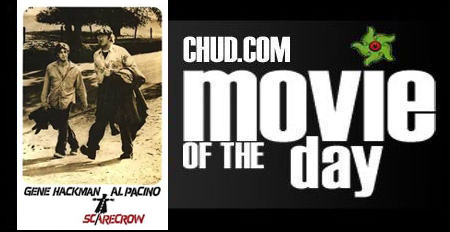
The Film: Scarecrow (1973)
The Principals: Jerry Schatzberg (director), Al Pacino, Gene Hackman
The Premise: Two drifters meet up on a desolate and miserable stretch of Midwestern road. Max (Hackman) is grim and grumpy and tries to ignore the friendly overtures and silly antics of Francis (Pacino). But Francis persists, until Max is finally won over by Francis’ gift of a match — his last match — for his cigar.
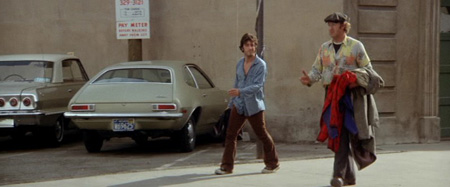
And boy, does fire sooth the savage beast. Max is so struck by this gesture that he insists Francis (who he renames Lionel / Lion) go into business with him, and they continue on the open road together. Francis happily agrees to the proposition, and the two set out towards Pittsburgh, where they will open a car wash with Max’s life savings. But first, they must stop in Denver to meet Max’s old friend Coley and Detroit so Francis can finally meet his child. But even on the open road, your demons have a way of catching up to you.
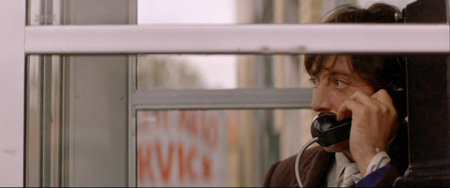
Is It Good: It’s very good. It’s a really small character piece, and so intimate that it could easily be played on the stage without losing a beat. It’s a quiet but tense story, and features little of the bombastic performances we’ve come to expect from Hackman or Pacino.
This is the Pacino I like best — the young, gawky, wide-eyed guy who had such a tender stillness about him, and who could truly be anybody. As Francis, he is sweet and childlike, constantly using humor to distract and lighten a situation. You just know something awful is going to happen to him to shatter his naivete. And when it does, it happens in such a sickening one-two punch that it’s shattering. Pacino’s look of horror when the axe drops may be one of his finest moments (I think it’s right up there with “I knew it was you, Fredo! You broke my heart!”), and is a gut shot all its own.
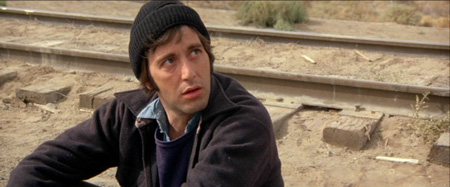
These are such honest and real characters, too. They are unique without being painfully quirky. Max is an ex-con, fresh out of San Quentin, full of anger and lurking menace. This is a man you’ve actually met sometime in your life. He might be your grandpa, your uncle, or that friend you hesitate to invite to parties because you don’t know what the hell will set them off. He means well enough, but you can’t really trust him. Hackman plays it with a lot of nuance though, making sure Max constantly surprises and scares us, and fleshing him out into the kind of guy you would actually keep around.

Is It Worth A Look: Absolutely. It’s beautifully shot by Vilmos Zsigmond (what stunning lighting on that dead prairie), and despite having a lot of comedy, it’s a tense and unsettling film. As I said above, you know something bad is going to happen. It”s just a question of what, when, and to whom. Though the ending really does offer hope and compassion, it’s wrapped in such a bleak question mark that it’s hard to not curse the credits. Damn. I always come away from 1970s film amazed that there wasn’t more mass suicide, because I’ll be damned if I know how the hippies kept on peace, love, and understanding when the artistic mood was so very black.
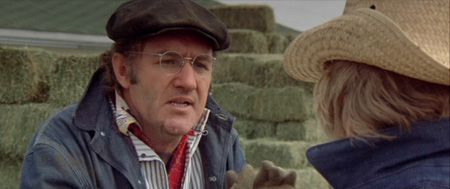
Random Anecdotes: This is Hackman’s favorite role of all time. He was so broken by its box office failure that he allegedly decided to concentrate purely on commercial films.
(Thanks to DVD Beaver for the screencaps. It thrills my heart you actually had my favorite shot — Pacino sitting on the railroad tracks and in desperate need of a hug.)